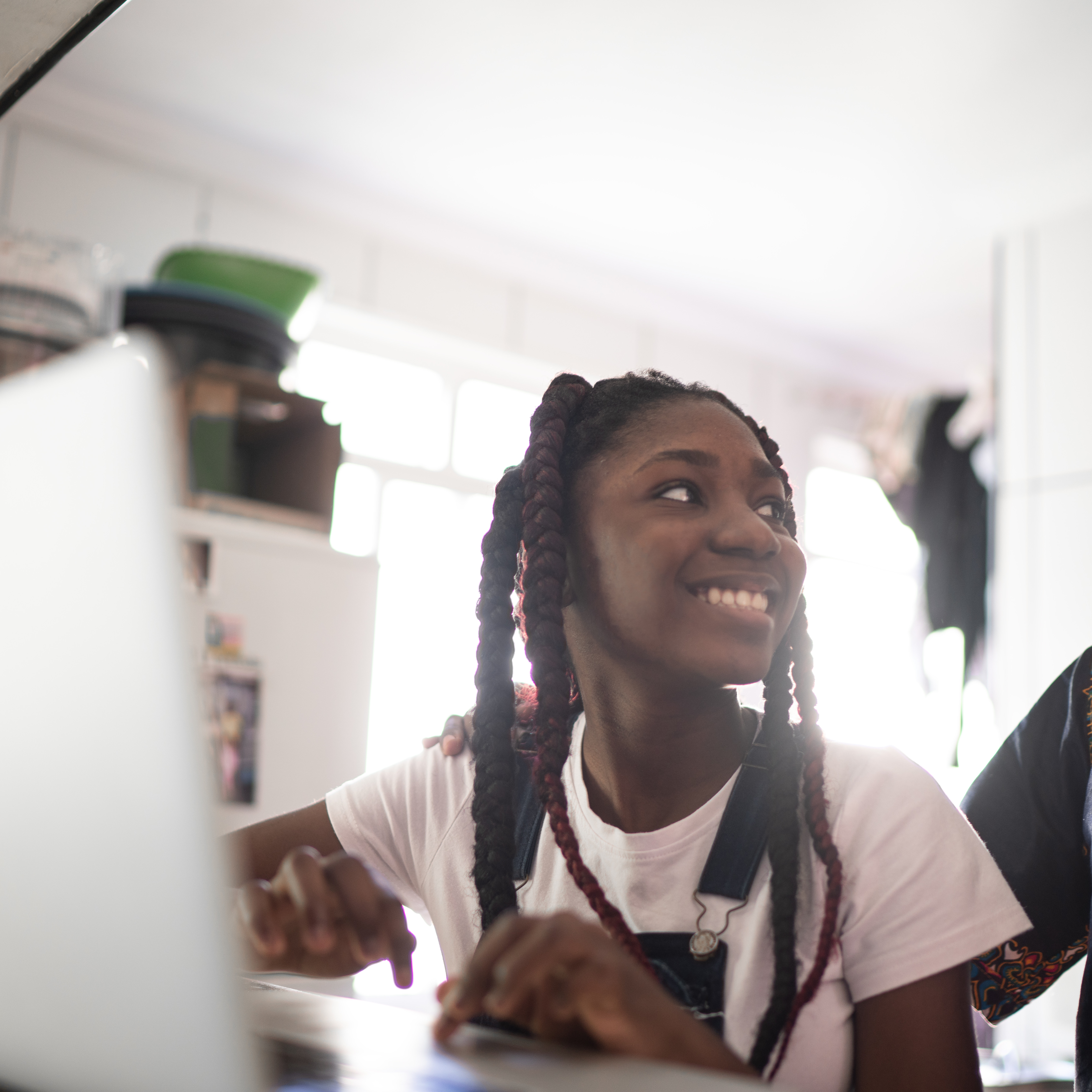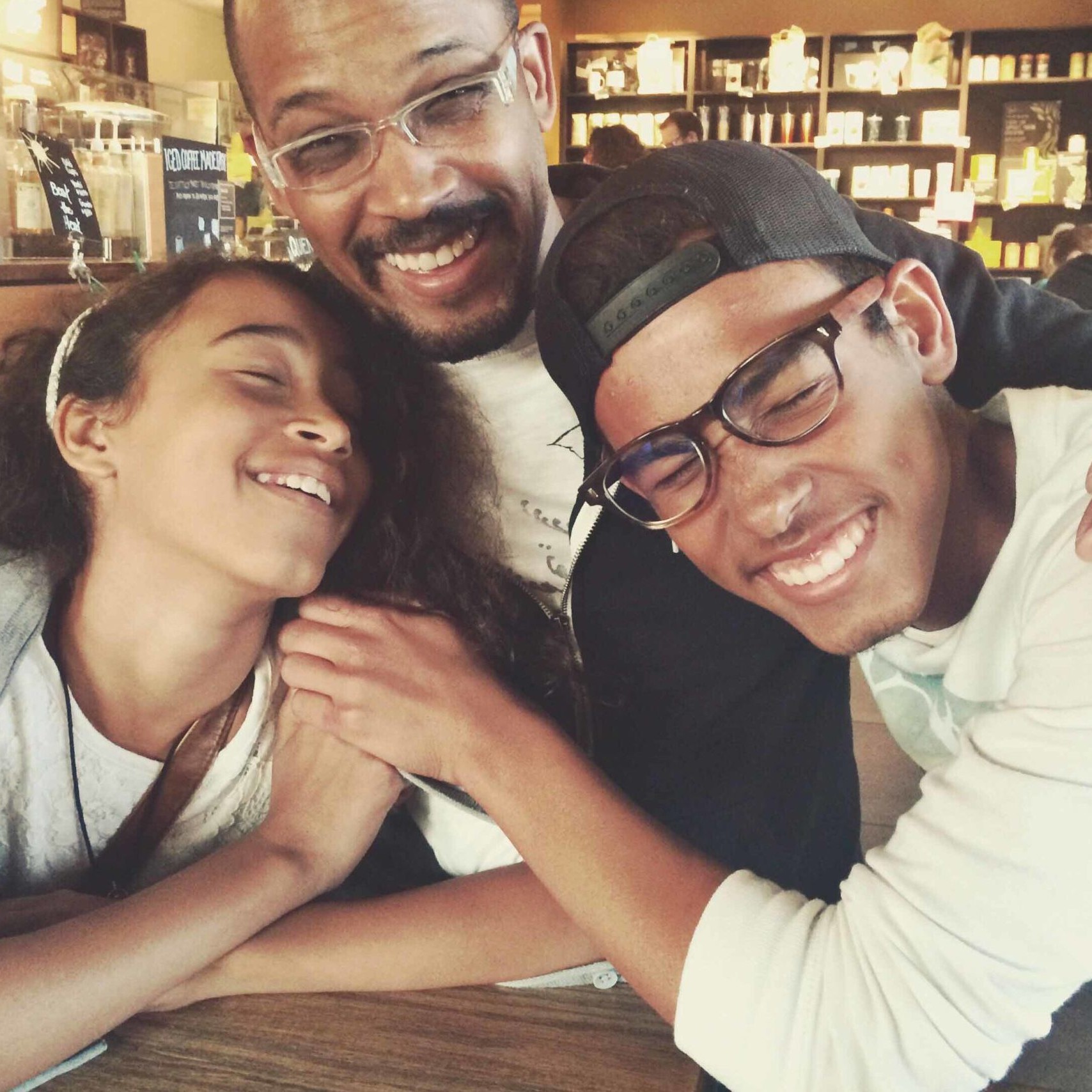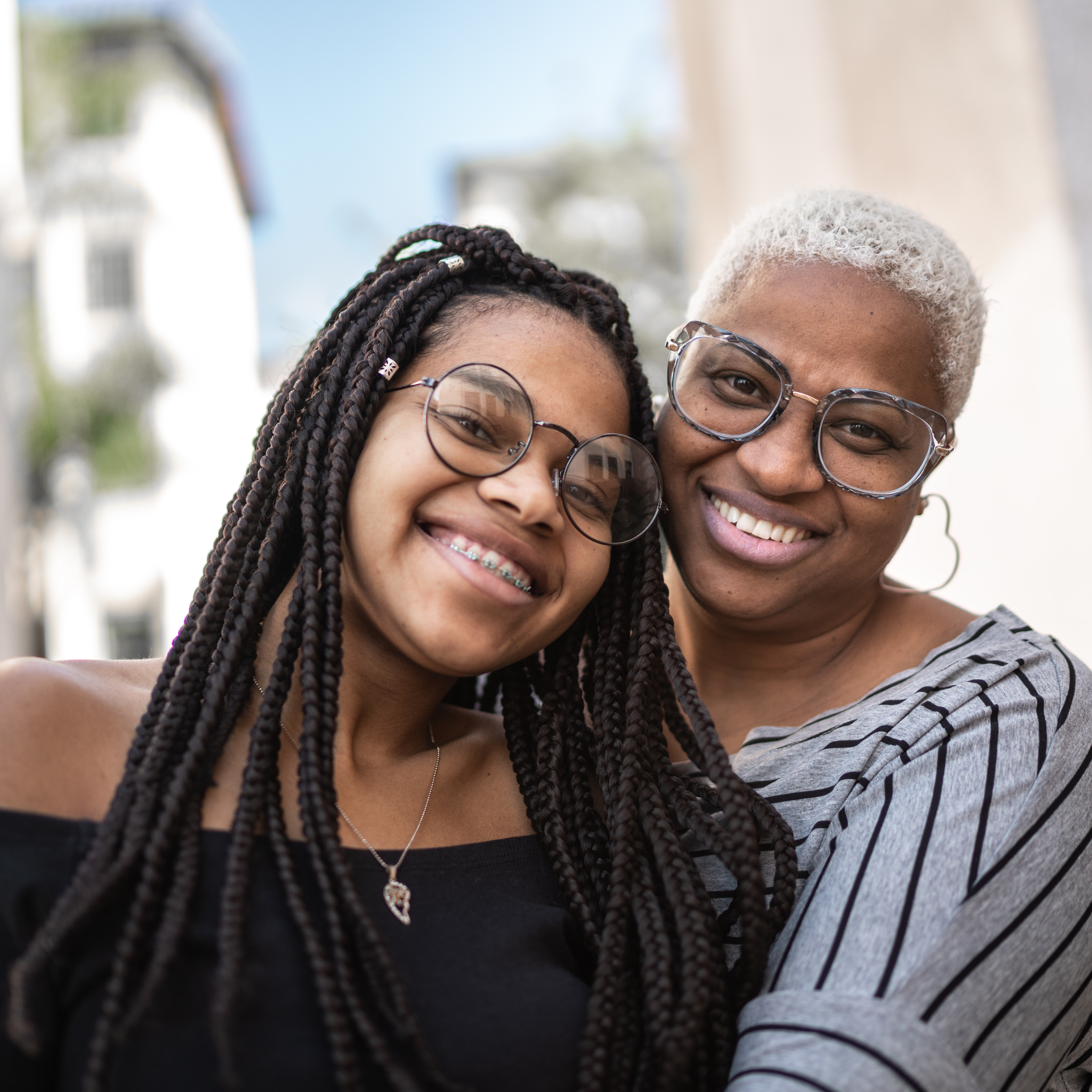The first year of high school can be a memorable yet confusing experience.
There are new people, new opportunities, and new responsibilities — plus all the changes happening inside teens’ brains and bodies.
What can parents do to help their teens navigate these changes and challenges? That’s one of the questions we asked during our recent Facebook Live featuring experts Dr. Marie Banich, neuroscientist; Dr. Michelle Rozenman, clinical adolescent psychologist; and Emily Rivera, an experienced high school counselor.
Here are some of the insights they shared about what’s happening to teens at the ages of 14 or 15.
Tap a button below to jump to the topic you’re most interested in.
Brain
Dr. Marie Banich, neuroscientist
“[The reward system] in the brain is very active in teenagers. What does that mean? That means a lot of the family activities you’ve done previously that they enjoyed may now seem boring. They’re not new and exciting. They know exactly what Friday night pizza is going to be like or whatever your family tradition might be. They’re going to seek out new experiences. That’s just part of what this stage of life is about.”
Tap to watch Dr. Banich’s 3-minute video
Dr. Banich explains that teens ages 14 and 15 are starting to transition into adulthood. But even though they seem quite adult-like at times, the frontal lobe in their brain is still developing — and will continue to do so until they are in their early twenties.
“The frontal lobe is important for independent behavior, for judgment and decision-making, for controlling inhibition, for guiding one’s behavior in a purposeful manner,” says Dr. Banich.
This means parents should expect that 14- and 15-year-olds are still more on the child side of the spectrum.
Also at this age, research shows there’s a peak in activity in the reward centers in the brain. This part of a teen’s brain is especially responsive to new and unexpected things that they like and find rewarding. Dr. Banich says this is why teens get bored with things they used to enjoy and seek out new experiences.
“What we need to do as parents and educators and professionals is to try to help teens have these new experiences in a way that they don’t get themselves into trouble or is detrimental. But an important part of this developmental phase is seeking out new experiences and learning how to adapt and take on more adult roles.”
– Dr. Banich
Behavior & Feelings
Dr. Michelle Rozenman, psychologist
“Teens can be really enthusiastic and excited for these novel experiences, and simultaneously feel really sad or angry sometimes. These fluctuations can be frustrating for both the teens and the parents. One minute your teen’s laughing at a TikTok video, and the next they snap at you because you’ve told them to sit down for dinner.”
Tap to watch Dr. Rozenman’s 3-minute video
Dr. Rozenman explains that while we can’t see the changes that are happening inside a teen’s brain, we can notice how they behave and try to understand what they think and how they feel.
She says there are two types of behaviors often seen at ages 14 and 15: approach behaviors and avoidance behaviors. Approach behaviors including seeking out new things, as Dr. Banich described.
“This is an approach toward novelty or risk, to new experiences, to things teens previously were not allowed to do before, maybe to things they’re still not allowed to do but their friends are doing. Maybe things like wanting to drive before they’ve actually practiced, doing things that test those limits of independence that parents are setting,” says Dr. Rozenman.
While a teen has some approach behaviors, they can also have some of the opposite — avoidance or withdrawal behaviors — at the same time.
“This is when a teen doesn’t do things that we might want them to do or that they have to do. You might see procrastination in assignments to the point where a teen might get a little behind. Or attempting to get out of things that are new challenges, like giving a presentation for the first time in front of a new ninth-grade class. You might also see withdrawal from prior friendships or from family members. Teens may want to spend more time alone in their room.”
– Dr. Rozenman
When trying to understand how teens think, Dr. Rozenman points out that teens at ages 14 and 15 are beginning to problem solve and think through hypotheticals, yet still often do things like set long-term goals — like wanting a car — without having a plan for how to achieve it.
She notes they are also trying to figure out where they belong in their social world: “Do my peers like me? Why have my friendships changed? Where do I fit in in my social group? Where do I fit in in my family or my broader community?”
Teens have a lot to figure out while they are learning to become more independent. Managing big emotions is part of that. Dr. Rozenman says it is a normal part of this stage for teens to have sudden emotional swings.
Academics & Social Environment
Emily Rivera, high school counselor
“Teens are going through all kinds of brain changes, changes with their emotions and behavior, and then we throw them in a salad spinner that is high school! That can be pretty overwhelming.”
Tap to watch Ms. Rivera’s 3-minute video
Emily Rivera says that kids entering high school for the first time are often in a bigger school environment and suddenly have many more choices.
“They’re exposed to a greater variety of classes than they may have had in middle school or elementary school where they have some autonomy over, ‘Do I want to take drawing or do I want to take engineering?’”
There are also lots of new classmates, so they have new choices of people to spend time with. Ms. Rivera says it’s important for teens to have a voice in all these new decisions. She compares the transition to high school to parents riding with their kids on tandem bikes: when the child is young, parents do nearly all the pedaling and steering. But as their child becomes a teen and enters high school, it’s time for the teen to do more of the pedaling and steering until they can ride the bike by themselves.
“Eventually your kid is ready to start making these choices for themselves. In classes, we see that a lot with, if a student is starting to struggle in class, parents oftentimes want to reach out directly to the teacher, which is great. I encourage you to stay involved in what’s happening in school. But it’s also an opportunity to empower students and teach them to advocate for themselves. ‘How do you write an email to a teacher, or how do you have that conversation with them if you are struggling?’”
– Ms. Rivera
Ms. Rivera also noted that grades become more important in high school. Students are now earning credits they will need to graduate and building a grade point average that they may use to apply to colleges. While grades are important, she wants parents and students to seek balance and accept that there will be stumbles along the way.
“I want to remind parents and students of the importance of realistic expectations and not putting too much stress on students to overperform. I think a lot of our students are so stressed about needing to get the best grades possible and do all of the sports and all of the extracurricular activities. They get so many messages that their every choice and action is going to be a make-or-break for the rest of their lives. Whether that’s something that they’re putting on themselves or something that is coming from them externally, they feel a lot of pressure. I always want to remind students and parents that you’re more than your GPA. That your self-worth is not summed up in a test score.”
Tips for Parents
How Can Parents Best Support Teens At This Stage?
While teens are experiencing major shifts in their brains and behaviors, parents may feel the urge to have some control over their teen’s choices. But our experts agree that the best thing parents can do is allow their teens some freedom to explore their own choices and consequences safely.
Tap or scroll over the cards below to explore.
Give them space
“Give them some space to make those choices and to become the person that they are, not who you want them to be necessarily — giving them that space to not mirror your values all the time,” said Ms. Rivera.
Know your teen’s world
“Have some specific things to ask about. That shows your interest and gives your teen a chance to really shine and be the expert,” said Ms. Rivera.
Encourage good health habits
“Take a walk, be involved in sports,” said Dr. Banich. “It’s also important for teenagers to get some sleep, even though they might want to stay up late.”
Allow for direct, open communication
“Let them know, ‘I’m here whenever you need me, whenever you want to talk. I’m your parent and I love you.” That will let your team know you’re there when they do have something they need to talk about,” said Dr. Rozenman.
Try not to pass judgment quickly
“Listen first to understand and avoid those judgments as you see your student exploring — whether it is fashion, piercings, gender or sexual identity. Coming down with a quick judgment or belittling your child is a surefire way to shut down communication,” said Ms. Rivera.
Most importantly, experts agree that parents should try not to take things too personally. It’s a normal part of development for teens to relate more to their peers, push back against familiar values, and try to find their own identity.
“It’s not you; it’s developmentally appropriate for them to often think that you’re the least cool person in the world. But your opinion does still matter. Keep asking those questions,” says Ms. Rivera. “Talk to your kids about what’s important to them and the kind of person they’re becoming.”
For more information on all these topics watch the entire Facebook Live below or here on Facebook. To stay updated on future Facebook Live events, be sure to like and follow our Facebook page.
About:
Dr. Marie Banich is executive director, Intermountain Neuroimaging Center (INC) at University of Colorado – Boulder. She researches why teenagers and young adults think — and act — differently from adults.
Dr. Michelle Rozenman is an assistant professor of psychology and director of the BRAVE Lab in the University of Denver’s Department of Psychology. She specializes in clinical psychology and provides training to middle and high school teachers about how to support youth through times of stress and as their brains develop.
Emily Rivera is a counselor at South High School in Denver. She has nearly 20 years of experience as a counselor and helps students with the transition from middle school to high school.



